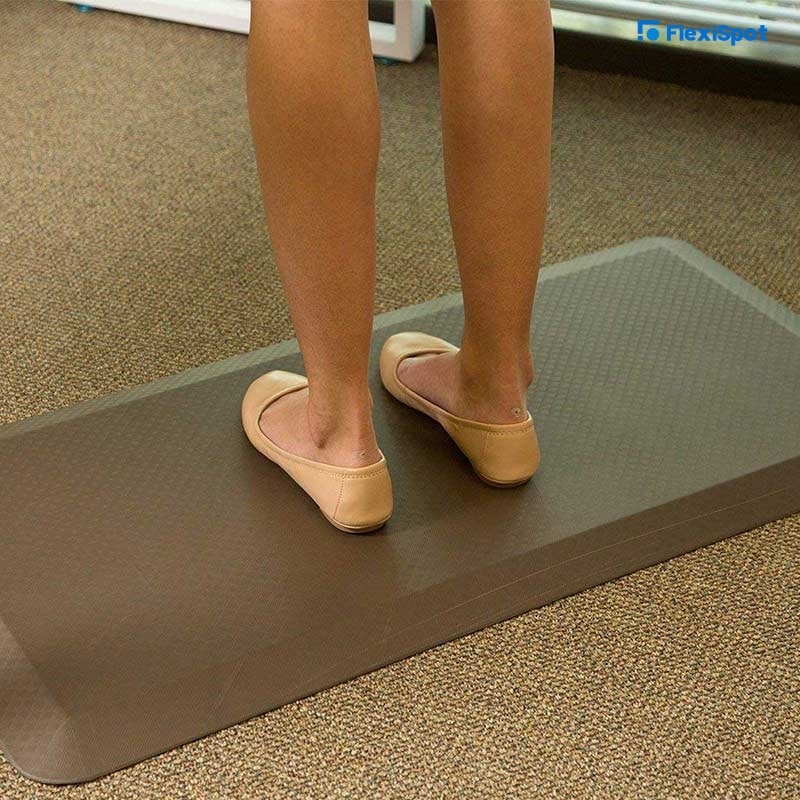How to Deal with Chronic Fatigue at Work: Symptoms and Solutions
They say, “All work and no play makes Jack a dull boy." But what happens when even play doesn't seem to help Jack? What does he do when everything begins to seem overwhelming, and he can barely give any output at work?
You'd probably say he is suffering from stress or exhaustion. You may even further advise that he take time off work to rest. Or even better, you could diagnose him with depression. Then, you'll tell him to stop living a sedentary lifestyle and try hanging out more.
These diagnoses and treatment advice would have done a world of good for Jack if he suffered from depression or exhaustion. In this case, however, he is dealing with something more severe than the side effects of a sedentary lifestyle. What he has, is called the Chronic Fatigue Syndrome (CFS).
Chronic Fatigue Syndrome, also known as Myalgic Encephalomyelitis (ME), is one of the most complicated stress disorders. It is characterized by severe fatigue, which spans a long period. It is a disease that gets worse with each physical and mental engagement.
CFS is a condition that a large number of the working-class population suffer from without even knowing it. Most persons aren't even aware that such a condition exists. And for those who know, a couple of them do not know how best to manage it.
In this piece, we give you an insight into what Chronic Fatigue Syndrome is. There are also tips on how Flexispot can help you manage the condition if you already have it. If you don't, you will find our tips on relieving work stress pretty useful. Read Up!
Chronic Fatigue Syndrome and Tips to Manage
Chronic Fatigue Syndrome is an illness of both the body and the mind. At the moment, the cause of this silent killer has no identifiable cause. The symptoms, however, are easily identifiable.
A person suffering from CFS will experience extreme fatigue, memory loss, and muscle and joint pains. He will be unable to concentrate, exercise, and experience pain at random. This pain could either be in the joint muscle areas or constant headaches.
Such a person might experience discomfort or unease for unknown reasons. He would either have difficulty sleeping or sleep excessively. Sore throat, difficulty thinking, and malaise would also follow.
Please note that this syndrome has symptoms that are pretty identical to mild stress diseases. When all these symptoms begin to occur together, though, and for really long periods, then you can predict that a person has CFS. Either way, know that self-diagnosis is not an option. It is a disease that requires the diagnosis of a medical practitioner.
While CFS is incurable, several self-care treatment options can help manage the syndrome. These self-care options could be therapy, medications, or lifestyle drugs. And Flexispot already has tools in place to help you or your employee get back on their feet in no time.
Want to know how? Take a look at the following self-care procedures:
Exercising Excessively Is Not a Good Idea
All CFS sufferers should know that CFS gets worse with strenuous activity. Whether the syndrome is at an all-time high or you are feeling well, you should never exert yourself unnecessarily. This is to avoid crashing right back to where you started. It would help if you avoided long and excessive exercises.
A healthy option is to own a Sit2Go 2-in-1 Flexispot Fitness Chair. This chair features a luxury office chair with a breathable backrest. Unlike regular chairs, though, this one has an exercise bike at the base of the chair. You can use the chair in the office, study room, and even the kitchen.
With this chair, you exercise quietly at your own pace without unnecessary pressure at the gym. You can also control the level at which you exert your body to prevent a relapse. That way, you don't pressure your body too much. And at the same time, you do not miss out on exercise entirely.
Get Some Sleep
Getting a good rest either at night or at intervals is undoubtedly one of the best ways to relax. But since CFS sufferers tend to have sleeping disorders, sleep may not seem to be the best option. Most times, they struggle with insomnia. And when they eventually get some sleep, they are even more tired than when they go to bed.
A solution to this is to get a Flexispot anti-fatigue floor mat. It helps relieve all the pressure that comes with standing the whole day. It also works for persons who sit the whole day and stand for a while later to cook or clean.
When you stand on an anti-fatigue mat, you enjoy some level of cushioned support under your feet. It suspends the weight of your body off your feet. That way, you don't go to bed with tired, sore, and achy muscles. Consequently, you can enjoy a healthy sleep.
Relax and Unwind
Stress and everyday concern can sap our energies, whether we are suffering from CFS or not. For CFS sufferers, it gets worse. Stress aggravates their condition and, in most cases, triggers a reoccurrence.
To prevent this from happening, we advise that you relax and unwind from time to time. Take meditation classes, speak to a therapist, go on stress-free adventures or find a support group. In all, remember that the goal is to relax in the absence of stress.
Take Command
People with conditions like CFS tamper with their recovery when they live at the mercy of others. The moment you realize your condition, it is best to take charge of your life from that very point. This is because self-pity will take you a million steps backward.
Understand that the only person that can make your recovery work is you. So live, eat, breathe and work in that consciousness. Place things in your workspace that helps you feel in charge and less lazy about your recovery.
You can start by getting any of the Flexispot height adjustable standing desks. Working on your feet gives you a sense of authority. And at the same time, it helps relieve chronic fatigue.
Determine your limitations
One of the fastest ways to recover is to identify your limitations. You can get a journal and identify things that trigger your relapses. Note your highs and your lows and the factors surrounding these psychological shifts.
Also, be aware of your progress as you start the self-care procedures. At first, they might seem small and insignificant. This shouldn't stop you from keeping account of them. With each positive change, pat yourself on the back for how far you have come.
Make a schedule that you can stick to
A sense of independence and a level of self-reliance will also help you get through each day. At the start of the day, you can make a to-do list that you can work with. Note that your schedule should not be cumbersome. Only set daily goals that you are sure you will achieve.
It becomes overwhelming when your schedule is loaded, and you have to carry daily goals into the next day. And it will most likely result in a relapse of some kind.
Food can help you feel more energized.
Food is a natural energy booster. But if you are dealing without a condition like CFS, you can't eat just anything. You should avoid foods with concentrated sugars and fats. Avoid eating junk and stick to properly cooked meals.
It would help if you learned to make healthy and nutritious additions to your meal. For example, you can add a few scoops of steamed vegetables to a plate of steak or roasted yams.
Exercising is important, but you must do it intelligently
The absence of exercise does the same level of damage that extreme exercises will do to a CFS patient. So, you have to find a balance.
Very often than not, doctors recommend exercise routines for CFS patients, or they are referred to physiotherapists. We think you should stick with medically approved exercise routines.
Maintain a positive attitude
Like life and everything in it, CFS patients are bound to experience highs and lows. When it feels like you have attained a full recovery, strive to sustain it to the best of your abilities. And when you experience a relapse, do not take solace in self-pity.
It might be hard at first, but you should maintain a positive outlook on life. You can also take time to engage in self-discovery.
Frequently Asked Questions (FAQs)
What are the most visible symptoms of chronic fatigue?
The most prominent symptoms of chronic fatigue syndrome are sleeping disorders, memory loss, extreme fatigue, illnesses, malaise, and discomfort for unexplainable reasons.
Can chronic fatigue be cured?
The answer is No. There is no cure for the disease for now. However, you can maintain it with medically prescribed self-care procedures. Together with the already suggested Flexispot equipment, these procedures can help alleviate the symptoms.
How likely are CFS sufferers to die from the condition?
At the moment, there is only a little research on CFS. So the morbidity and mortality rate is quite unknown. Nevertheless, if the symptoms are not properly managed, they could rest in far worse conditions. And even death.
How dangerous is chronic fatigue syndrome?
The disease is pretty dangerous as it is known to halt the lives of its sufferers for a while. And the far dangerous part of it all is when the sufferer does not know that he has such conditions. Or far worse, when a sufferer discovers his condition pretty late.









